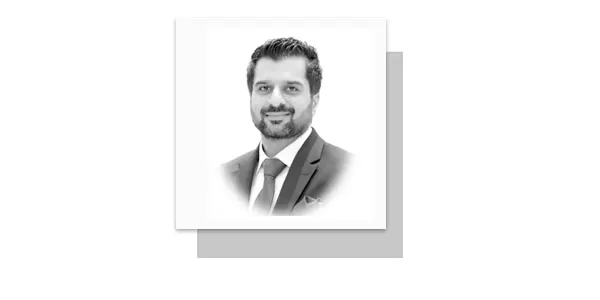IMAGINE sitting peacefully, only to discover that someone with a fake name has falsely accused you on social media. You now face the challenge of safeguarding your moral and ethical image within your social circle. Such an event can bring misery to someone’s life and compel them to report it to the authorities. Communities on social media must tackle integration and survival challenges, as negative elements take advantage of the opportunity to create fake identities and pursue their evil intentions. This phenomenon has not only harmed individuals but has also affected societies globally by promoting hate speech based on religion, politics and ethnicity. The detrimental effects of social media are well-known for damaging both individuals and their social lives. Preventing the spread of negative propaganda has become a major challenge for states, affecting both the state and its thriving communities.
The most troubling aspect of this story is that those who use social media for nefarious purposes rarely face the consequences of their unjust actions against individuals and communities. In today’s globalized world, this is the most alarming trend. People fall for false propaganda on social media and become instruments of destruction in societies. MIT conducted a study revealing that false news on Twitter spreads faster, further and deeper than true news due to novelty and emotional appeal, leading to reputational damage and societal chaos. It’s undeniable that these social media platforms have sparked a revolution in the modern tech era. These platforms are now valuable tools for disseminating information, seeking justice, promoting accountability, advocating for human rights and empowering communities through awareness.
Despite its positive side, social media platforms have failed to address their negative consequences. Social media platforms are all owned by companies that exercise full control over the information that passes through them. A fair objection to social media platforms is their failure to control the creation of fake profiles, which is the root cause of the mess they spread. The fact is that when making a profile on Facebook, users are required to provide their bio-data for registration. Almost everyone who uses social media uses a mobile phone with SIMs in their name. If social media platforms require personal phone numbers for profile formation and immediate verification, the problem of fake profiles can be significantly reduced. But internal documents from Facebook, known as the “Facebook Papers,” exposed the company’s awareness of hate speech and misinformation on its platform, yet insufficient action was taken to combat these problems, with engagement being prioritized over safety.
A few countries are now implementing stricter verification measures. In China, platforms like WeChat mandate the connection of user accounts with national ID numbers, diminishing anonymity and combating fake profiles. A study conducted by the Global Disinformation Index revealed that countries with strict identification requirements experienced a nearly 60% decrease in the dissemination of fake news when implementing stricter verification procedures, highlighting the potential effectiveness of such measures. Therefore, social media platforms need to establish a different system that only allows verified users to access their platforms.
By doing this, governments can alleviate the burden of tackling crimes on social media. This will effectively reduce the spread of fake news. It would prevent false accusations from being made against others. Furthermore, it would lessen political persecution. By requiring people to use their real profiles, it will encourage them to behave and act decently on their social media. However, the reluctance of the global community to implement this mechanism hinders the creation of a safe and harmonious social media community. The pressing issue of our time requires the world community to compel social media companies to create a mechanism for verified identities. Envision the influence that doing this exercise could have. It would ensure that people don’t lose their well-deserved reputation. Online bullying and catfishing cases would be eliminated instantly. The increase in authenticity will also contribute to the success of businesses. It would deter terrorists from executing their malicious schemes. Enhanced inter-governmental interaction would put an end to cross-border terrorism, and strict measures would be taken against individuals promoting hatred and terrorism.
The European Union has introduced the Digital Services Act (DSA) to enforce accountability on social media companies regarding illegal content and misinformation. The DSA aims to regulate the impact of social media on society through transparency, user protection, and stricter content moderation. The United Nations must also fulfil its role outlined in its charter by safeguarding cultures and addressing human rights abuses stemming from the misuse of social media. The UN should establish rules for social media companies, as their owners should not have sole control over global communities. Social media platforms also need to respect people’s privacy and refrain from gathering any information about individuals, specific groups, or cultures. This is not in line with ethical norms and standards.
In the age of social media, everyone is susceptible to victimization by those who hold animosity towards them. Furthermore, every community faces the danger of false propaganda being spread against them. The states also face the challenge of maintaining unity and integration among their people. The world needs to recognize that communities are where people come together to prosper and develop. The rise of social media has altered the dynamics of communities, with people now primarily engaging through online platforms. The rules and regulations governing social media communities need urgent fixing. If left unchecked, social media will bring nothing but chaos and destruction.
—The writer is an educationist and a Commoner from 44th Common, based in Sargodha.
(waqarhassancsp@gmail.com)










